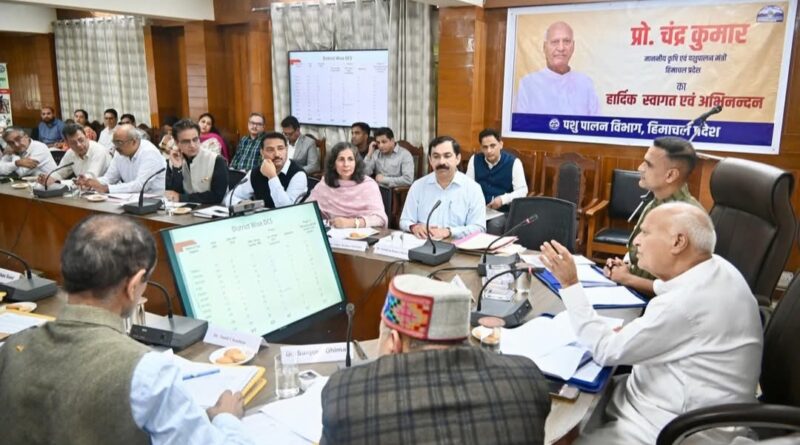Himachal Pushes for Self-Reliance, Aims to Double Farmer Incomes
In a significant move to strengthen its rural economy, the Himachal Pradesh government has unveiled a multi-pronged strategy focused on empowering farmers and pastoralists, with a core goal of creating a self-reliant state and doubling agricultural incomes.
The plans were finalized during a review meeting of the Animal Husbandry Department chaired by Minister Chandra Kumar. The meeting emphasized a renewed focus on grassroots support, with several new initiatives and a push to improve the efficiency of existing schemes.
A New “Pehal” for Shepherds, the Guardians of the Borders
Recognizing the vital role of shepherding communities like the Gaddis and Gujjars, not just in animal husbandry but also as “sentinels of the country’s borders,” the department has prepared a comprehensive scheme named ‘Pehal’ (Pastoralists Empowerment through Holistic Ecosystem for Livelihoods). The draft scheme, prepared after studying models in Uttarakhand and Jammu & Kashmir, has been sent to the Central Government for approval.
“These communities have always been at the forefront of protecting our borders and environment. ‘Pehal’ is our initiative to address their unique challenges and improve their livelihoods,” said Minister Kumar. The ambitious ₹294 crore scheme aims to boost wool, meat, and milk production by 15-20% and benefit 40,000 families through digital registration, better veterinary care, insurance, and encouraging startups.
Milk, Money, and Mandatory Cooperatives
In a push to streamline the dairy sector, the government has made it mandatory for Panchayats to either establish Dairy Cooperative Societies or formally pass a resolution explaining why they cannot. The registration deadline for these societies is set for 15th October 2025.
To directly support dairy farmers, the ‘Doodh Protsahan Yojana’ will be launched on 4th October 2025. Under this, milk producers supplying to eligible cooperative societies will receive a subsidy of ₹3 per litre directly into their accounts via Direct Benefit Transfer (DBT).
Vets to Go Door-to-Door, Poultry Sector Soars
In a major shift in policy, veterinarians have been directed to spend more time in the field. “Doctors must regularly interact with livestock owners at their doorstep. Farmers face challenges in bringing animals to hospitals,” stated Kumar, warning of action against staff who fail to do so. This field-based approach is already being supported by 44 mobile veterinary units that treat an average of over 5 cases daily across the state.
The meeting also celebrated a remarkable 52% growth in the state’s poultry sector, particularly in districts bordering Punjab. A new scheme aims to establish 1,000 new broiler units over five years with a 30% subsidy, promising to create over 10,000 jobs and significantly boost farmers’ incomes.
The gathering, attended by top officials and managing directors of key federations, concluded with a clear message: the state is committed to building a robust support system where the success of its farmers and pastoralists is the ultimate measure of progress.



